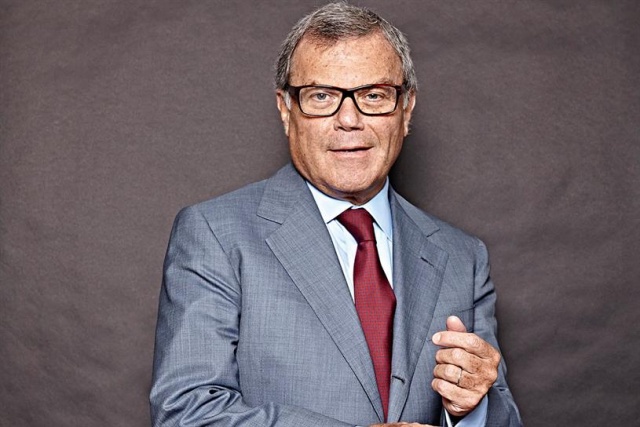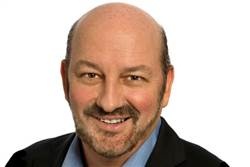Marketers are being urged to re-evaluate the role of media auditors amid concerns over a potential conflict of interest, with WPP chief executive Sir Martin Sorrell advising them to use one of the “Big Four” global accountancy firms to vet how agencies spend their clients’ money.

Sorrell singled out Ebiquity, arguing that it is “heavily conflicted” because it has one subsidiary, FirmDecisions, that audits whether agencies have complied with their contracts with advertisers while other parts of the business manage pitches for clients, advise them how to “secure better prices” and audit media spend.
Sorrell’s comments come after WPP’s media buying arm, Group M, began legal action against Firm-Decisions in London’s High Court in a dispute over the potential breach of a non-disclosure agreement involving “four or five” different confidential documents that were sent in error to the auditor by Group M agencies.
FirmDecisions has denied any wrongdoing and is robustly defending the case.
The company has admitted that a senior employee did discuss keeping one document it received by mistake from MediaCom Australia “up our sleeve”, but said all the employees involved in the 2014 incident were “reprimanded”, and an apology was made at the time.
Although Sorrell would not comment on the case, he said Ebiquity and other specialist media auditors operate to different standards from the chartered accountants. “We don’t think Ebiquity is an auditor,” Sorrell said. “We think, for audit purposes, you should use a professional auditor – ie one of the ‘Big Four’ firms.” That is a ref-erence to Deloitte, EY, KPMG and PwC.
Sorrell continued: “We are very comfortable with the ‘Big Four’ firms. We don’t have any problem with professional auditors who have professional rules and regulations.”
Global chief executive of FirmDecisions Stephen Broderick said: “What we’re asked by our clients to do is not statutory auditing. What clients ask us to do is to carry out financial compliance contract reviews. They’re asking us: have their agency complied with the terms of their contract. All of the senior staff at FirmDecisions are chartered, qualified, certified accountants, so they are all regulated by their own industry body.” He added that FirmDecisions doesn’t “work on pitches for any client” and operates sep-arately from other parts of Ebiquity.
Debbie Morrison, director of consultancy and best practice at ISBA, said media specialists played an important role – both in media auditing and compliance auditing. “I am not aware that the ‘Big Four’ have the specialist knowledge and skills required,” she said. “Most of ISBA’s members use one of the specialists in the marketplace. We don’t hear any complaints about them, so why change now?”
But Graham Brown, founding director of pitch consultant MediaSense, agreed with some of Sorrell’s criticism of media auditing specialists. He said: “I think Sir Martin is right – you cannot have arbitrary people wandering through the inner financial workings of a global plc. For clients to regain trust in the system, both auditors and agencies need to adhere to an agreed set of professional standards.”
A source close to WPP insisted there is no connection between its legal action against FirmDecisions and the auditor’s role advising America’s Association of National Advertisers on new guidelines to tighten contracts with media agencies.
The media specialists’ view

Greg Paull, founder, R3 Worldwide:
“Media auditing is a specialist area and requires people with the right experience. Using a ‘Big Four’ audit firm would be a poor idea. Sir Martin is right, though. There are too many media consultants who are doing so as a ‘lifestyle choice’ rather than a scalable business and they may not be the best-placed to poke around into media costs.”
Media auditing rises up the agenda
Media and compliance auditing has jumped up the agenda for marketers because procurement departments are demanding greater checks on how agencies are spending their money in an increasingly complex media world.
Specialist media auditors emerged in the UK in the 1980s and 1990s with firms such as Media Audits (which was acquired by Accenture) and Ebiquity (which bought Fairbrother, Billetts and FirmDecisions). Most are not chartered accountancy firms and are unregulated, unlike the “Big Four” accountants.
Specialist media auditors maintain that they have unique expertise and don’t need to be chartered accountants because they are not signing off statutory financial accounts.
There is an important difference between media auditing (checking how well an agency is buying) and compliance auditing (checking that an agency is complying legally with its contract with an advertiser).
Compliance specialist FirmDecisions insists that it avoids conflicts of interest by not managing agency pitches on behalf of Ebiquity clients.
Other media specialists range from R3 Worldwide to smaller outfits such as Financial Progression, a chartered accountancy firm, and freelance consultants.
Source: Campaign





